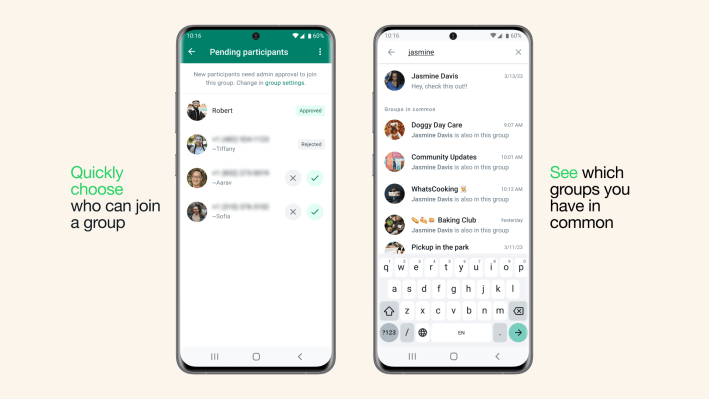Meta CEO Mark Zuckerberg has announced an update for groups on WhatsApp that is designed to give admins more control over who can join a group. Zuckerberg also revealed a feature that makes it easier for users to discover which groups they have in common with someone.
The company says it wanted to give admins more control over their group privacy, which is why it has built a simple tool that gives admins the ability to quickly decide who is able to join a group. When an admin chooses to share their group’s invite link, or make their group joinable in a community, they can now access all of the requests in one place to manage who to let in. With this new feature, admins can click an “X” or a checkmark to either reject or approve a user.
WhatsApp says it also wants to make it easier for users to find out which groups you have in common with someone. The app now lets you search a contact’s name to see your groups in common. You can use the new feature if you’re trying to remember the name of a group you know you share with someone or if you want to see the groups you’re both in.
The launch of the new features come a few months after WhatsApp launched Communities, a new feature offering larger, more structured discussion groups. Communities bring a number of new features to the messaging platform, including admin controls, support for sub-groups and announcement groups, 32-person voice and video calls, larger-file sharing, emoji reactions and polls. Communities themselves can support groups of up to 1,024 users and offer end-to-end encryption.
“Last year, we rolled out Communities to help people get the most out of their groups on WhatsApp,” the company said in an emailed press release. “Since launching, we’ve wanted to build even more tools for admins and users alike. Today we’re excited to roll out a few new changes we’ve made to make groups more manageable for admins and easier to navigate for everyone.”
The two new features announced today will start rolling out globally over the coming weeks.
